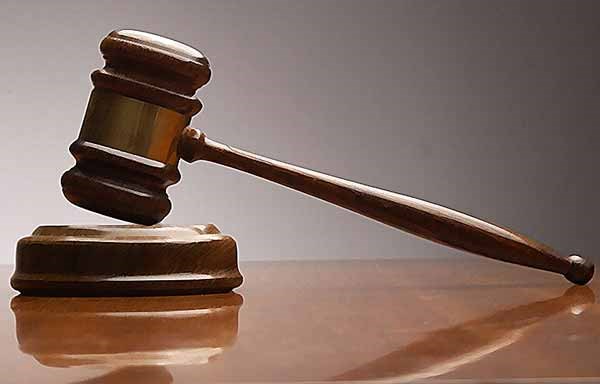A Yorkton judge has reserved his decision in a marijuana and methampetamine trafficking trial.
On November 25, the Court heard that during a compliance check on Michael Winter’s home in Yorkton, police found two other men in the house.
The officer in charge, Cst Filipe Vicente, was aware one of those men, Dustin Kennedy, was also free on release conditions, federal prosecutor Rhiannon Rees said.
A search of the house turned up more than 30 grams of marijuana, a small quantity of which was packaged for sale, Rees alleged. Police also found and seized two baggies of methamphetamine in quantities of 3.3 and 0.4 grams, scales, a number of empty “dime” baggies, $200 cash and a cell phone containing what the Crown described as evidence of “trafficking by offer” via a Facebook account under the name Dustin Kennedy.
Defence attorney Richard Yaholnitsky brought a Charter challenge that the search was illegal.
Yaholnitsky argued that because the original check was on Winter’s compliance, Kennedy’s rights were infringed in not allowing him to leave or consent to the search of the area of the house which the accused occupied.
The defence lawyer said police misled his client citing inconsistencies in police testimony as to whose conditions they were checking and Kennedy’s own testimony that he did not consent to the search and felt he was being detained.
Thus, Yaholnitksy argued, Kennedy’s Charter rights had been infringed and any evidence obtained thereof was tainted and should not be allowed.
Rees countered that police had reasonable grounds to search the residence and that the suspect was voluntarily compliant, hence the evidence should be allowed.
On the drug charges, Yaholnitsky called Kennedy himself to the stand. Kennedy testified he was a medical marijuana user and produced an identification card from Martin Medical Services, a dispensary in Whitewood, which is now closed after police raided it November 8.
Kennedy denied the cell phone police seized was his and suggested the Facebook account under his name must have been either stolen or created by another unidentified individual who Kennedy said lived at the house. He said he hadn’t used Facebook since 2014.
The defence also noted an expert had testified the methamphetamine appeared to have been for personal use.
Rees conceded some of the officers’ understanding of the situation was “confused” and did not dispute Kennedy was a licenced medical marijuana user. But, she argued, the entirety of the circumstances proved beyond a reasonable doubt that Kennedy was illegally selling drugs.
She called the man’s testimony “self-serving” and “not forthright” and said the evidence suggests he invented the other person he claimed lived in the basement.
She noted that the phone was found on a table next to Kennedy’s wallet and a piece of mail bearing his name and was logged into a Facebook account under his name with active messages trying to arrange drug deals.
The prosecutor said suggesting it was not Kennedy’s phone and the messages were not intended for him “strains credibility.”
Judge Green asked if it was fair to say the Crown’s case came down to the text messages.
“Yes,” Rees said.
She cited case law, including R. v. Crane from the Saskatchewan Court of Appeal, in which it was ruled the Crown need not prove a defendant had either the intention or means to follow through with a sale, but merely making the offer constitutes trafficking.
She conceded the amount of drugs seized was not a huge quantity, but argued the number of texts offering was significant on both the marijuana and methamphetamine.
Green reserved his decision saying he wants time to think about the case “because there are a lot of facets to it.”
He scheduled a hearing for the verdict on December 20. Kennedy consented to his continued remand until that time.




